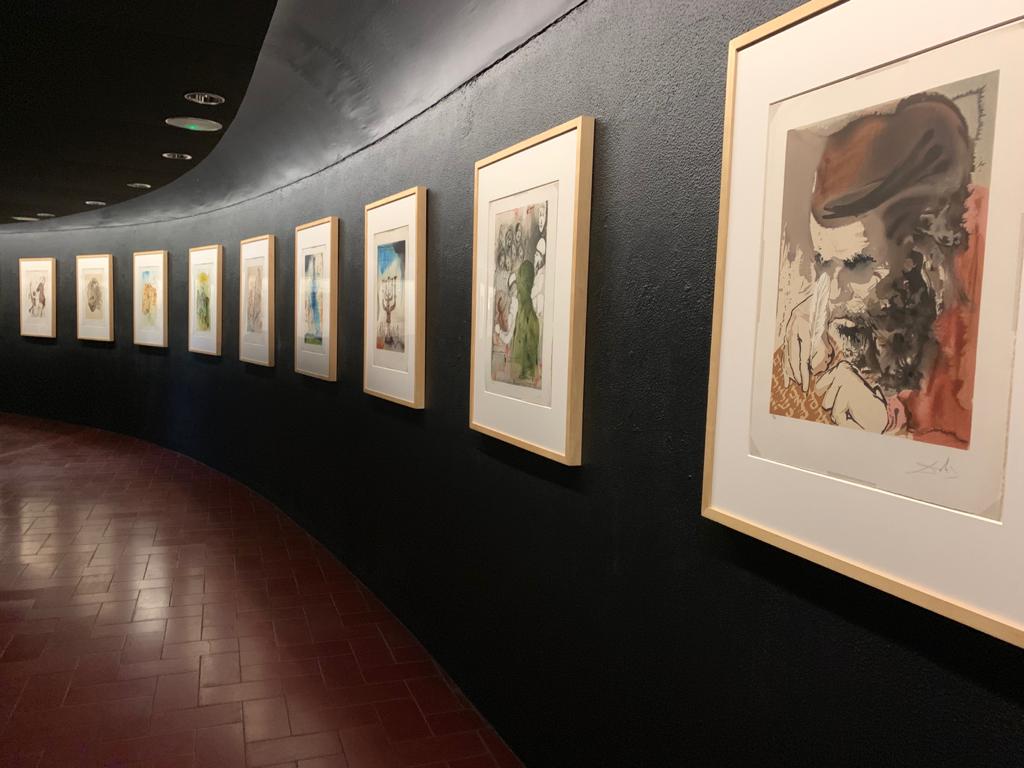Managing Oneself (Part 1)
Peter F. Drucker
“What are my strengths? How do I perform? What Are My Values?”
Values, in other words, are and should be the ultimate test”
What Are My Strengths
Most people think they know what they are good at. They are usually wrong. People know what they are not good at more often—and even there people are more often wrong than right.
And yet, one can only perform with one’s strengths. One cannot build performance on weaknesses, let alone on something one cannot do at all.
For the great majority of people, to know their strengths was irrelevant only a few decades ago. One was born into a job and into a line of work. The peasant’s son became a peasant. If he was not good at being a peasant, he failed. The artisan’s son was similarly going to be an artisan, and so on. But now people have choices. They therefore have to know their strengths so that they can know where they belong.
There is only one way to find out:
The Feedback Analysis
There is only one way to find out: The Feedback Analysis.
Whenever one makes a key decision, and whenever one does a key action, one writes down what one expects will happen. And nine months or twelve months later one then feeds back from results to expectations. I have been doing this for some fifteen to twenty years now. And every time I do it I am surprised. And so is everyone who has ever done this.
This is by no means a new method. It was invented some-time in the 14th century, by an otherwise totally obscure German theologian. Some 150 years later Jean Calvin in Geneva (1509-1564), father of Calvinism, and Ignatius Loyola (1491-1556), the founder of the Jesuit Order, quite independent of each other, picked up the idea and incorporated it into their rules for every member of their groups, that is, for the Calvinist pastor and the Jesuit priest. This explains why these two new institutions (both founded in the same year, in 1536) had come within thirty years to dominate Europe: Calvinism the Protestant north; the Jesuit Order the Catholic south. By that time each group contained so many thousands of members that most of them had to be ordinary rather than exceptional. Many of them worked alone, if not in complete isolation. Many of them had to work underground and in constant fear of persecution. Yet very few defected. The routine feedback from results to expectations reaffirmed them in their commitment. It enabled them to focus on performance and results, and with it, on achievement and satisfaction.
Within a fairly short period of time, maybe two or three years, this simple procedure will tell people first where their strengths are—and this is probably the most important thing to know about oneself. It will show them what they do or fail to do that deprives them of the full yield from their strengths. It will show them where they are not particularly competent. And it will finally show them where they have no strengths and cannot per-form.
Several action conclusions follow from the feedback analysis :

Overcome Intellectual Arrogance
First-rate engineers tend to take pride in not knowing anything about people—human beings are much too dis-orderly for the good engineering mind. And accountants, too, tend to think it unnecessary to know about people Human Resources people, by contrast, often pride them-selves of their ignorance of elementary accounting or of quantitative methods altogether. Brilliant executives who are being posted abroad often believe that business skill is sufficient, and dismiss learning about the history, the arts, the culture, the traditions of the country where they are now expected to perform—only to find that their brilliant business skills produce no results.
One important action conclusion from the feedback analysis is thus to overcome intellectual arrogance and work on acquiring the skills and knowledge needed to make one’s strengths fully productive.
An equally important action conclusion is to remedy one’s bad habits-things one does or fails to do that inhibit effectiveness and performance. They quickly show up in the feedback analysis.
The analysis may show, for instance, that a planner’s beautiful plans die because he or she does not follow through. Like so many brilliant people, he or she believes that ideas move mountains. But bulldozers move mountains; ideas show where the bulldozers have to go to work. The most brilliant planners far too often stop when the plan is completed. But that is when the work begins. Then the planner needs to find the people to carry out the plan, explain the plan to them, teach them, adapt and change the plan as it moves from planning to doing and, finally, decide when to stop pushing the plan.
But the analysis may also show that a person fails to obtain results because he or she lacks manners.
Bright people especially bright young people often do not understand that manners are the “lubricating oil” of an organization.
It is a Law of Nature that two moving bodies in contact with each other create friction. Two human beings in contact with each other therefore always create friction. And then manners are the lubricating oil that enables these two moving bodies to work together, whether they like each other or not—simple things like saying “please” and “thank you” and knowing a person’s birthday or name, and remembering to ask after the person’s family. If the analysis shows that brilliant work fails again and again as soon as it requires cooperation by others, it probably indicates a lack of courtesy, that is, of manners.
Manners are the “lubricating oil” of an organization
How Do I Perform
How Do I Perform? is as important a question and especially for knowledge workers as What Are My Strengths?
In fact, it may be an even more important question. Amazingly few people know how they get things done. On the contrary, most of us do not even know that different people work and perform differently. They therefore work in ways that are not their ways—and that almost guarantees nonperformance.
The main reason perhaps that so many people do not know how they perform is that the schools throughout history insisted out of necessity on there being only one way for everybody to do his or her schoolwork. The teacher who ran a classroom of forty youngsters simply did not have the time to find out how each of the students performed. The teacher, on the contrary, had to insist that all do the same work, the same way, the same time. And so historically everybody grew up with one way of doing the work. Here perhaps is where the new technology may have the greatest and most beneficial impact. It should enable even the merely competent teacher to find out how a student learns and then to encourage the student to do the work the way that fits the individual student.
People have results by doing what they are good at
Like one’s strengths, how one performs is individual. It is personality. Whether personality be “nature” or “nurture,” it surely is formed long before the person goes to work. And how a person performs is a “given,” just as what a person is good at or not good at is a “given.” It can be modified, but it is unlikely to be changed.
And just as people have results by doing what they are good at, people have results by performing how they perform.
The feedback analysis may indicate that there is something amiss in how one performs. But rarely does it identify the cause It is, however, normally not too difficult to find out. It takes a few years of work experience. And then one can ask and quickly answer—how one performs. For a few common personality traits usually determine how one achieves results.
Reader or Listener
The first thing to know about how one performs is whether one is a reader or a listener.
Yet very few people even know that there are readers and there are listeners, and that very few people are both. Even fewer know which of the two they themselves are But a few examples will show how damaging it is not to know.
When he was Commander-in-Chief of the Allied Forces in Europe, General Dwight (Ike) Eisenhower was the darling of the press, and attendance at one of his press conferences was considered a rare treat. These conferences were famous for their style, for Eisenhower’s total command of whatever question was being asked and, equally, for his ability to describe a situation or to explain a policy in two or three beautifully polished and elegant sentences.
Ten years later, President Eisenhower was held in open con-tempt by his former admirers. They considered him a buffoon. He never, they complained, even addressed himself to the question asked, but rambled on endlessly about something else. And he was constantly ridiculed for butchering the King’s English in his incoherent and ungrammatical answers. Yet Eisenhower had owed his brilliant earlier career in large measure to a virtuoso performance as a speechwriter for General MacArthur, one of the most demanding stylists in American public life.

The explanation: Eisenhower apparently did not know him-self that he was a reader and not a listener. When he was Commander-in-Chief in Europe, his aides made sure that every question from the press was handed in in writing at least half an hour before the conference began. And then Eisenhower was in total command.
When he became President he succeeded two listeners, Franklin D. Roosevelt and Harry Truman. Both men knew this and both enjoyed free-for-all press conferences. Roosevelt knew himself to be so much of a listener that he insisted that everything first be read out loud to him only then did he look at anything in writing. And when Truman realized, after becoming President, that he needed to learn about foreign and military affairs—neither of which he had ever been much interested in before he arranged for his two ablest Cabinet members, General Marshall and Dean Acheson, to give him a daily tutorial in which each delivered a forty-minute spoken presentation, after which the President asked questions. Eisenhower, apparently, felt that he had to do what his two famous predecessors had done. As a result, he never even heard the question the journalists asked. And he was not even an extreme case of a nonlistener.
A few years later Lyndon Johnson destroyed his Presidency, in large measure, by not knowing that he—unlike Eisenhower—was a listener. His predecessor, John Kennedy, who knew that he was a reader, had assembled as his assistants a brilliant group of writers such as Arthur Schlesinger, Jr., the historian, and Bill Moyers, a first-rate journalist. Kennedy made sure that they first wrote to him before dis-cussing their memos in person. Johnson kept these people as his staff—and they kept on writing. He never, apparently, got one word of what they wrote. Yet, as a senator, Johnson, only four years earlier, had been superb;
for parliamentarians have, above all, to be listeners.
Only a century ago very few people, even in the most highly developed country, knew whether they were right-handed or left-handed. Left-handers were suppressed. Few actually became competent right-handers. Most of them ended up as incompetent no-handers and with severe emotional damage such as stuttering.
But only one of every ten human beings is left-handed. The ratio of listeners to readers seems, however, to be close to fifty-fifty. Yet, just as few left-handers became competent right-handers, few listeners can be made, or can make themselves, into competent readers—and vice versa.
The listener who tries to be a reader will, therefore, suffer the fate of Lyndon Johnson, while the reader who tries to be a listener will suffer the fate of Dwight Eisenhower. They will not perform or achieve.
The first thing to know about how one performs is whether one is a reader or a listener
How Do I Learn
The second thing to know about how one performs is to know how one learns. There things may be even worse than they are in respect to readers and listeners. For schools everywhere are organized on the assumption that there is one right way to learn, and that it is the same way for everybody.
Many first-class writers—Winston Churchill is but one example—do poorly in school, and they tend to remember their school as pure torture. Yet few of their classmates have the same memory of the same school and the same teachers; they may not have enjoyed the school very much but the worst they suffered was boredom. The explanation is that first-rate writers do not, as a rule, learn by listening and reading. They learn by writing. Since this is not the way the school allows them to learn, they get poor grades. And to be forced to learn the way the school teaches is sheet hell for them and pure torture.
Here are a few examples of different ways in which people learn.
Beethoven left behind an enormous number of sketchbooks. Yet he himself said that he never looked at a sketchbook when he actually wrote his compositions. When asked, “Why then, do you keep a sketchbook?” he is reported to have answered, “If I don’t write it down immediately I forget it right away. If I put it into a sketchbook I never forget it, and I never have to look it up again.”
Alfred Sloan—the man who built General Motors into the world’s largest, and for sixty years the world’s most successful, manufacturing company conducted most of his management business in small and lively meetings. As soon as a meeting was over, Sloan went to his office and spent several hours composing a letter to one of the meeting’s participants, in which he brought out the key questions discussed in the meeting, the issues the meeting raised, the decisions it reached and the problems it uncovered but did not solve. When complimented on these letters, he is reported to have said, “If I do not sit down immediately after the meeting and think through what it actually was all about, and then put it down in writing, I will have forgotten it within twenty-four hours. That’s why I write these letters.”
A chief executive officer who, in the 1950s and 1960s, con-verted what was a small and mediocre family firm into the world’s leading company in its industry, was in the habit of calling his entire senior staff into his office, usually once a week, haying them sit in a half-circle around his desk, and then talking at them for two or three hours. He very rarely asked these people for their comments or their questions. He argued with himself. He raised the possibility of a policy move—acquisition of a small and failing company in the industry that had, however, some special technology, for instance. He always took three different positions on every one of these questions: one in favor of the move, one against the move and one on the conditions under which such a move might make sense. He needed an audience to hear himself talk. It was the way he learned. And again, while a fairly extreme case, he was by no means an unusual one. Successful trial lawyers learn the same way; so do many medical diagnosticians.

There are probably half dozen different ways to learn. There are people who learn by raking copious notes—the way Beethoven did. But Alfred Sloan never took a note in a meeting, nor did the CEO mentioned above. There are people who learn by hearing themselves talk. There are people who learn by writing. There are people who learn by doing. And in an (informal) survey I once took of professors in American universities who successfully publish scholarly books of wide appeal, I was told again and again, “To hear myself talk is the reason why I teach; because then I can write.”
Actually, of all the important pieces of self-knowledge, this is one of the easiest to acquire. When I ask people, “How do you learn?” most of them know it. But when I then ask, “Do you act on this knowledge?” few do. And yet to act on this knowledge is the key to performance—or rather not to act on this knowledge is to condemn oneself to nonperformance.
To ask “How do I perform?” and “How do I learn?” are the most important first questions to ask
This is a reason, by the way, why the number-two person in an organization often fails when promoted into the top spot. The top spot requires a decision maker. Strong decision makers in the top spot often put somebody whom they trust into the number-two spot as their adviser—and in that position that person is outstanding. But when then promoted into the number-one spot, the person fails. He or she knows what the decision should be but cannot take decision-making responsibility.
The action conclusion:
Again, do not try to change yourself—it is unlikely to be successful. But work, and hard, to improve the way you perform. And try not to do work of any kind in a way you do not perform or perform poorly.
What Are My Values
To be able to manage oneself; one finally has to know: “What are my values?”
In respect to ethics, the rules are the same. for everybody, and the test is a simple one—I call it the
“mirror test”
As the story goes, the most highly respected diplomatist of all the Great Powers in the early years of this century was the German Ambassador in London. He was clearly destined for higher things, at least to become his country’s Foreign Minister, if not German Federal Chancellor. Yet, in 1906, he abruptly resigned. King Edward VII had then been on the British throne for five years, and the diplomatic corps was going to give him a big dinner. The German ambassador, being the dean of the diplomatic corps—he had been in London. for close to fifteen years—was to be the chairman of that dinner. King Edward VII was a notorious womanizer and made it clear what kind of dinner he wanted—at the end, after the desert had been served, a huge cake was going to appear, and out of it would jump a dozen or more naked prostitutes as the lights were dimmed. And the German ambassador resigned rather than preside over this dinner. “I refuse to see a pimp in the mirror in the morning, when I shave.”
Ethics, in other words, are a clear value system.
And they do not vary much—what is ethical behavior in one kind of organization or situation is ethical behavior in another kind of organization or situation. But ethics are only a part of the value system and, especially, only a part of the value system of an organization.
To work in an organization the value system of which is unacceptable to a person, or incompatible with it, condemns the person both to frustration and to nonperformance.
Ethics, in other words, are a clear value system
Here are some examples of values people have to learn about themselves.
A brilliant and highly successful executive found herself totally frustrated after her old company was acquired by a bigger one. She actually got a big promotion—and a promotion into doing the kind of work she did best. It was part of her job to select people for important positions. She deeply believed that one only hired people from the outside into important positions after having exhausted all inside possibilities. The company in which she now found herself as a senior human resources executive believed, however, that in staffing an important position that had become vacant, one first looked at the outside, “to bring in fresh blood.” There is something to be said for either way (though, in my experience, the proper one is to do some of both).
But they are fundamentally incompatible, not as policies but as values. They bespeak a different view of the relationship between organization and people; a different view of the responsibility of an organization to its people and in respect to developing them; a different view in what is the most important contribution of a person to an enterprise, and so on. After several years of frustration, the human resources executive quit, at considerable financial loss to herself. Her values and the values of the organization simply were not compatible.
Similarly, whether to try to obtain results in a pharmaceutical company by making constant, small improvements, or by occasional, highly expensive and risky “breakthroughs” is not primarily an economic question. The results of either strategy may be pretty much the same. It is at bottom a conflict of values—between a value system that sees the contribution of a pharmaceutical company to help the already successful physician to do better what he or she already does well, and a value system that is “science” oriented.

Values, in other words, are and should be the ultimate test
What to Do in a Value Conflict
There rarely is a conflict between a person’s strengths and the way that person performs. The two are complementary. But there is sometimes a conflict between a person’s values and the same person’s strengths.
What one does well—even very well—and successfully may not fit with one’s value system. It may not appear to that person as making a contribution and as something to which to devote one’s life (or even a substantial portion thereof).
If I may inject a personal note: I too, many years ago, had to decide between what I was doing well and successfully, and my values. I was doing extremely well as a young investment banker in London in the mid-1930s; it clearly fitted my strengths. Yet I did not see myself making a contribution as an asset manager of any kind. People, I realized, were my values. And I saw no point in being the richest man in the cemetery. I had no money, no job in a deep Depression and no prospects. But I quit—and it was the right thing.
Values, in other words, are and should be the ultimate test.
Adapted from “Management Challenges for the 21st Century”, P.161-195





